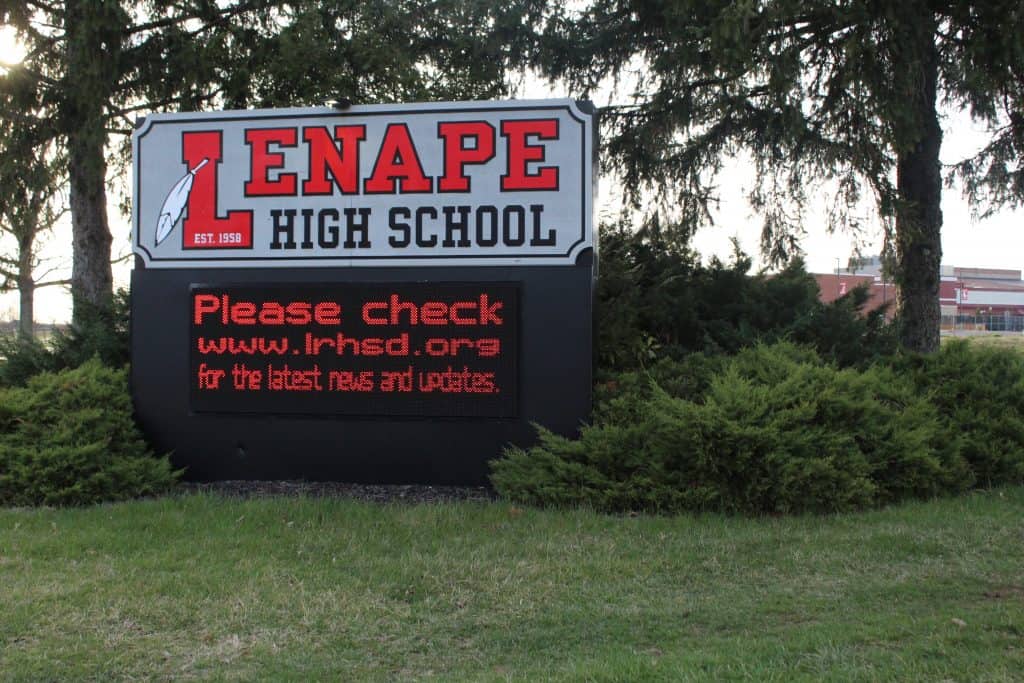

One week they were in the classroom; the next, their classrooms came home.
The weeklong process of planning for remote instruction due to the COVID-19 pandemic, became a reality in the Lenape Regional High School District on March 13, when the Burlington County Health Department ordered schools closed until at least April 17.
Cherokee High School Assistant Principal Mike Carr and Technology teacher Nate Knauss revealed that collaboration between both educators and administrators has helped facilitate the district’s transition from face-to-face to virtual instruction.
“They are such amazing teachers who collaborate well,” Carr said. “It has given them the opportunity to work with one another and create this virtual learning community.”
Knauss — who was named the district’s teacher of the year — said his colleagues drilled the idea of virtual instruction in students so they could gather the necessary textbooks and be well equipped when instruction shifted to computer screens.
“We drew from our own experiences of doing online learning in grad school, and then we started to make content, engage with our students the following Monday,” Knauss shared.
“That first Monday was like the first day of school.”
A few issues had to be worked out so students could access their teachers’ Google Classrooms or Blackboard videos — online platforms used by schools for class instruction, grading and discussion. Some families were faced with the issue of children without full access to a computer.
“We’re coming up with a great program on the fly, but in the realm of reflection, you always want to look back and go, ‘Hey, this is how this can be done’’ or ‘This went this way, how can I improve it?’ and that’s the improvement cycle and process we’d like to reflect on,” Carr explained.
Missing from virtual instruction is the ability to socialize. Knauss has addressed that as much as possible in his courses by hosting open question-and-answer sessions online, but he misses seeing his students daily and vice versa.
“The hardest part of this is kids who love Cherokee and our schools; they understand that learning is hard and works best when they’re with others and their teachers,” Knauss said.
“It’s a social sort of thing for them.”
Remote learning has taught Lenape educators how to facilitate lessons online efficiently and still maintain curriculum goals.
“It provides them with more opportunities to engage kids, and might also open the opportunity for students to learn better on their own and teach them how,” Knauss noted.
Two weeks into virtual instruction, Carr and Knauss agree both teachers and students have learned valuable ways to access and deliver a quality education.
“We’re trying to build this thing from the foundation up,” Carr said. “We’re starting and trying because we didn’t know what we were building on and how high to build it. We didn’t know how the building was going to be.”









